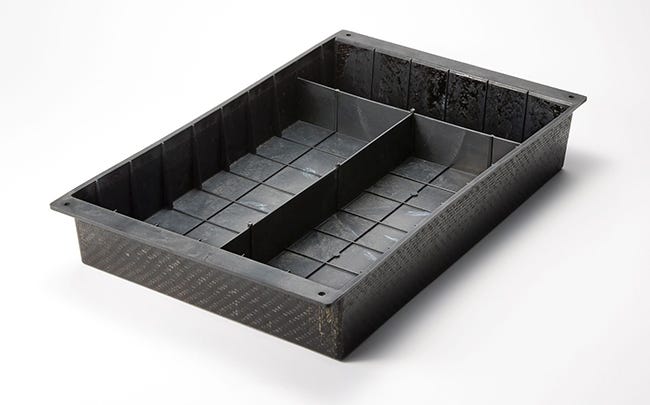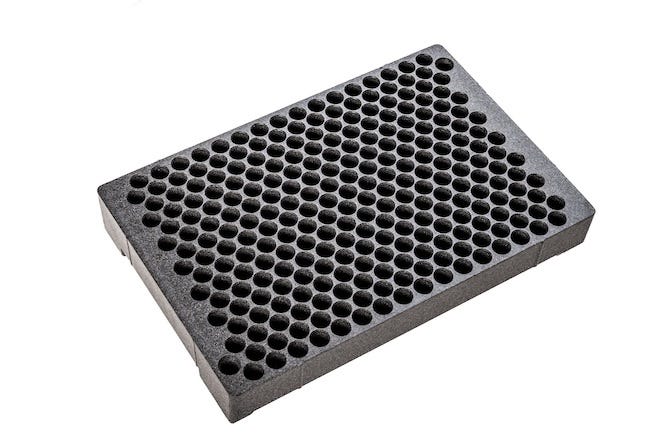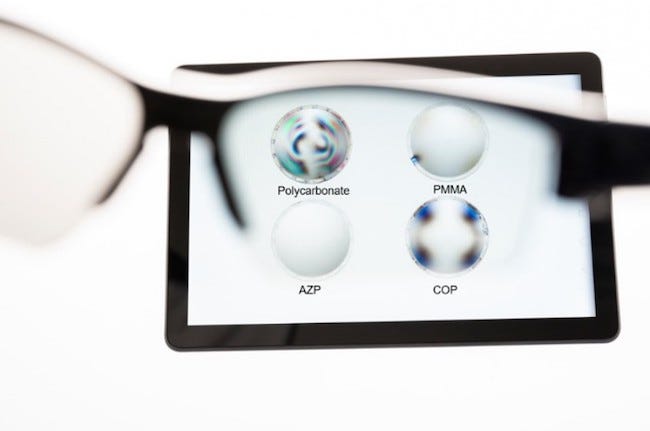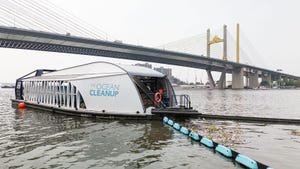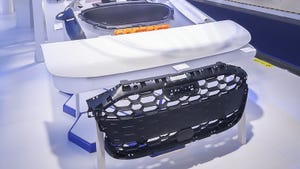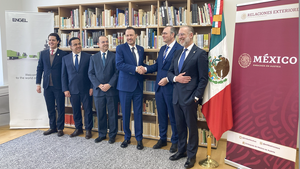Asahi Kasei at Fakuma: Diversified Material Solutions for EV Batteries and the Circular Economy
Highlights at the Fakuma stand include thermoplastic composites, glass-replacement materials, bio-based feedstock, and a new recycling technology for polyamide.
September 20, 2023
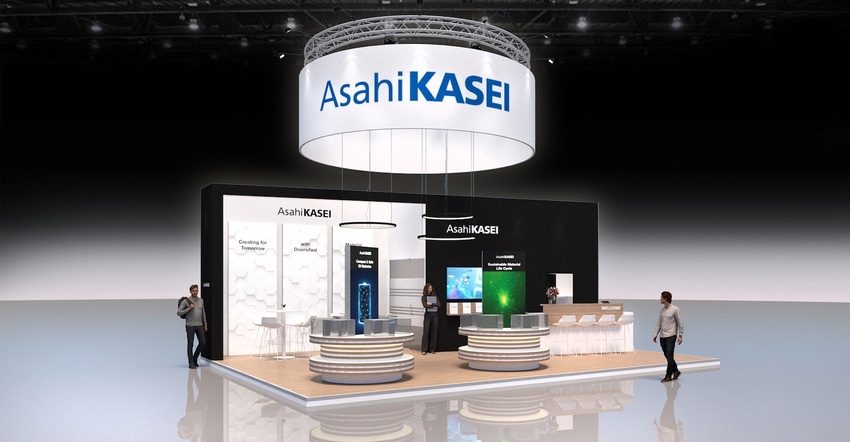
Japanese technology company Asahi Kasei will showcase a slate of material solutions for EV batteries, improved connectivity, and lightweighting, as well as the circular economy, at the Fakuma show to be held Oct. 17 to 21 in Friedrichshafen, Germany. Asahi Kasei will exhibit in hall B5 at booth 5319.
This year, Asahi Kasei will place a special focus on its broad range of materials for lightweight, compact, and safe electric vehicle batteries. The company is currently developing a new continuous glass-fiber-reinforced thermoplastic, Lencen, and will present it for the first time at Fakuma. This composite material is formed by stacking layers of continuous glass-fiber textiles with polyamide (PA) 66 films. Due to its tensile strength, heat resistance, and impact properties similar to metal, this material improves collision safety and reduces weight in EV batteries.
|
Lencen continuous glass-fiber-reinforced thermoplastic is making its global debut at Fakuma. |
In addition, the company will showcase a carbon-fiber-reinforced thermoplastic unidirectional tape (CFRTP-UD tape) that utilizes both recycled continuous carbon fiber and the company’s Leona PA resin. Boasting a higher strength than metal, this CFRTP-UD tape can be applied to automobile frames and bodies, further enabling the recycling of end-of-vehicle-life parts into different, new automobile parts.
Asahi Kasei will also showcase cooling pipes for EV battery packs made of the modified polyphenylene ether (mPPE) Xyron, as well as 2170 cell trays based on SunForce m-PPE particle foam.
|
2170 format cell trays are made of SunForce m-PPE particle foam. |
Solutions for improved HMI, glass replacement
Also on show is AZP, a transparent polymer that overcomes the disadvantages of conventional optical plastic materials. Featuring a close-to-zero birefringence equivalent to glass as well as superior designability, this material reportedly allows high transmittance and low color distortion at all viewing angles. Clear images without luminance variations, color distortion, or blurring can be achieved in polarized optical equipment such as human-machine interfaces (HMIs), AR/VR headsets, and head-up-displays (HUDs). A premium quality appearance is also maintained when looking at the display through polarized sunglasses.
|
Displays made of AZP polymer are viewable from all angles. |
Bio-based feedstock and new recycling technology for PA 66
Asahi Kasei will also present a bio-based and biodegradable cellulose nano fiber (CNF). This material is made from cotton linter and features high heat resistance and a network-forming capability. CNF-reinforced PA exhibits thixotropic behavior, making it highly suitable for 3D-printing applications in terms of easy printing, dimensional accuracy, smooth appearance, and mechanical performance. Furthermore, CNF has superior material recyclability compared with glass fibers.
The company will also present its comprehensive solutions for establishing a sustainable life cycle for PA 66 utilizing bio-based feedstock and a new technology for chemical recycling. Together with Japanese partner company Microwave Chemical, Asahi Kasei is working on a new technology for chemical recycling of PA 66. The process utilizes microwaves to depolymerize automotive airbags and other PA 66 parts and directly obtain the monomers hexamethylenediamine (HMD) and adipic acid (ADA), which is expected to be accomplished at high yield with low energy consumption. The monomers obtained can then be used to manufacture new PA 66.
About the Author(s)
You May Also Like

